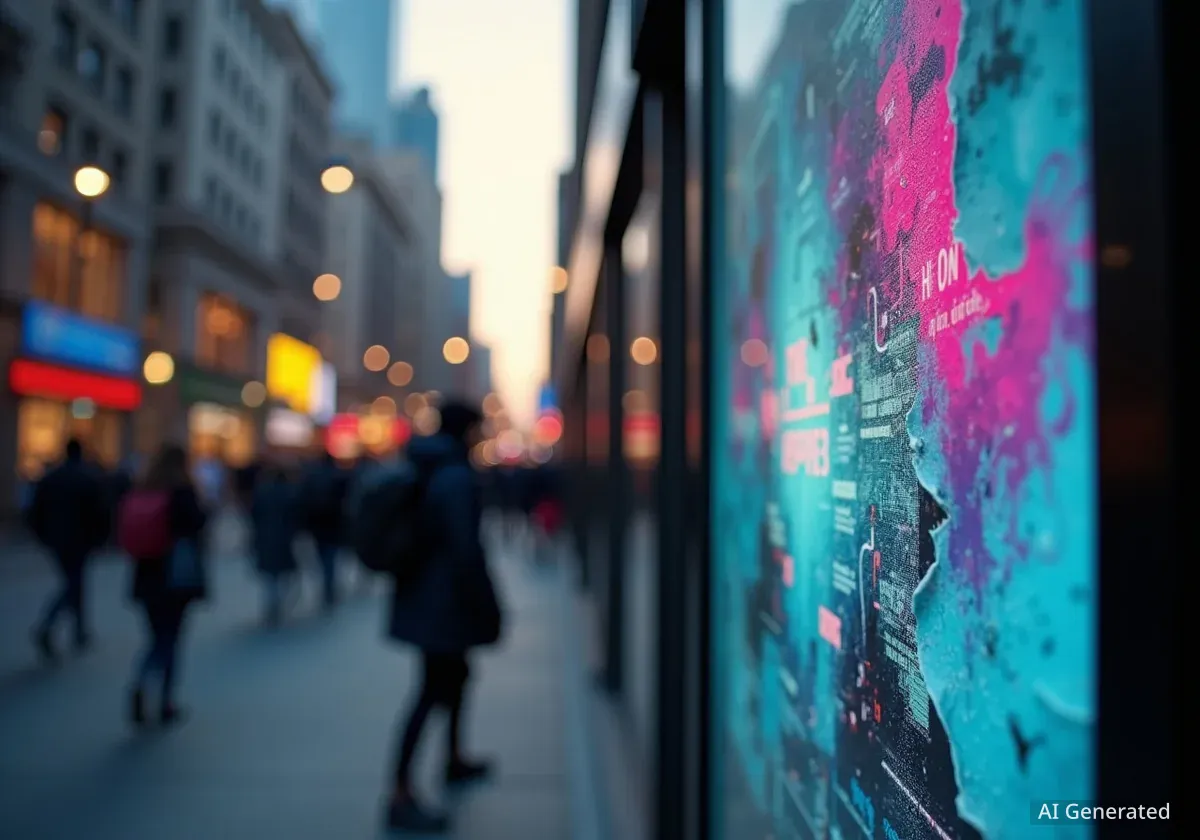Avi Schiffmann, the 22-year-old CEO of the artificial intelligence company Friend, is facing a significant public backlash over a massive advertising campaign in the New York City subway system. Instead of expressing concern, Schiffmann claims he welcomes the widespread criticism and vandalism targeting his company's ads for a wearable AI companion.
Key Takeaways
- Friend, a company selling a $129 wearable AI device, launched a $1 million ad campaign across the New York City subway system.
- The campaign, featuring over 10,000 posters, was met with widespread public hostility, including extensive graffiti and vandalism.
- Avi Schiffmann, the 22-year-old founder and CEO, stated he "loves" the negative reaction, viewing it as a form of engagement.
- The controversy highlights growing public skepticism and debate surrounding AI companionship and its role in society.
A Controversial Campaign Hits New York City
Earlier this year, Friend initiated a large-scale marketing effort to promote its flagship product: a $129 plastic disk worn as a necklace that functions as an AI companion. The device contains a microphone designed to interact with the user, offering conversation and assistance.
To generate awareness, the company invested $1 million to place more than 10,000 posters throughout the city's extensive subway network. The ads featured simple white backgrounds with messages intended to suggest companionship, such as, "I'll binge the entire series with you."
Campaign at a Glance
- Company: Friend
- Product: $129 Wearable AI Companion
- Campaign Cost: $1 million
- Ad Placement: 10,000+ posters in NYC subways
However, the campaign's message did not resonate positively with many New Yorkers. Instead of generating interest in the product, the ads became a canvas for public dissent and criticism of the concept of AI friendship.
Public Backlash and Vandalism
Almost immediately after the posters appeared, they were targeted with graffiti. Commuters and residents scribbled critical and often hostile messages directly onto the advertisements, transforming them into public forums for debate on artificial intelligence.
Common messages included direct criticisms of the product and the company. Vandals wrote phrases like "CRINGE" and "Fuck AI!" across the posters. Some comments were more philosophical, with one person writing, "AI wouldn’t care if you lived or died."
Other responses suggested alternative forms of real-world connection. According to reports, some defaced ads encouraged people to "befriend a senior citizen" or "volunteer with a community garden" as better ways to find companionship. The physical ads were frequently ripped and torn, showing a level of public anger that went beyond simple disagreement.
The Rise of AI Companions
The Friend device is part of a growing market of AI-powered companions and chatbots designed to combat loneliness and provide assistance. However, these products often spark ethical debates about the nature of human connection and the potential for technology to replace genuine relationships.
The backlash in New York City appears to be a strong indicator of public skepticism toward these technologies. The physical and visible nature of the subway ads provided a unique opportunity for people to voice their opinions directly.
The Founder's Unorthodox Response
In a surprising turn, Friend's founder and CEO, Avi Schiffmann, has publicly embraced the negative attention. The 22-year-old tech entrepreneur traveled from San Francisco to New York specifically to witness the vandalized advertisements firsthand.
During a meeting with a reporter at the West 4th Street subway station, a location heavily saturated with his company's ads, Schiffmann observed the graffiti. Many of the ads in the station's corridors had been defaced, and some were freshly replaced only to be vandalized again within hours.
When confronted with a poster that had "Fuck AI!" written on it, Schiffmann, who was wearing his own Friend device, reportedly responded, "I love it."
This reaction suggests a strategy of leveraging controversy to generate publicity. By framing the public's anger as a form of engagement, Schiffmann appears to believe that any attention, whether positive or negative, is beneficial for his brand. The backlash has arguably generated more discussion about Friend than the product itself might have achieved on its own.
Implications for the AI Industry
The public's reaction to the Friend campaign serves as a case study in the challenges facing companies that market AI companionship. While the technology continues to advance, public acceptance remains a significant hurdle. The incident shows a clear disconnect between the vision of some tech founders and the values of the general public.
Critics argue that such devices pathologize loneliness and offer a superficial solution to a complex human need. The suggestions to volunteer or connect with older adults written on the ads reflect a sentiment that community and human-to-human interaction are irreplaceable.
As the AI industry continues to grow, companies may need to adopt more nuanced marketing strategies that acknowledge public concerns. The Friend campaign in New York City demonstrates that simply presenting AI as a solution for companionship can provoke a strong, negative, and very public response.





